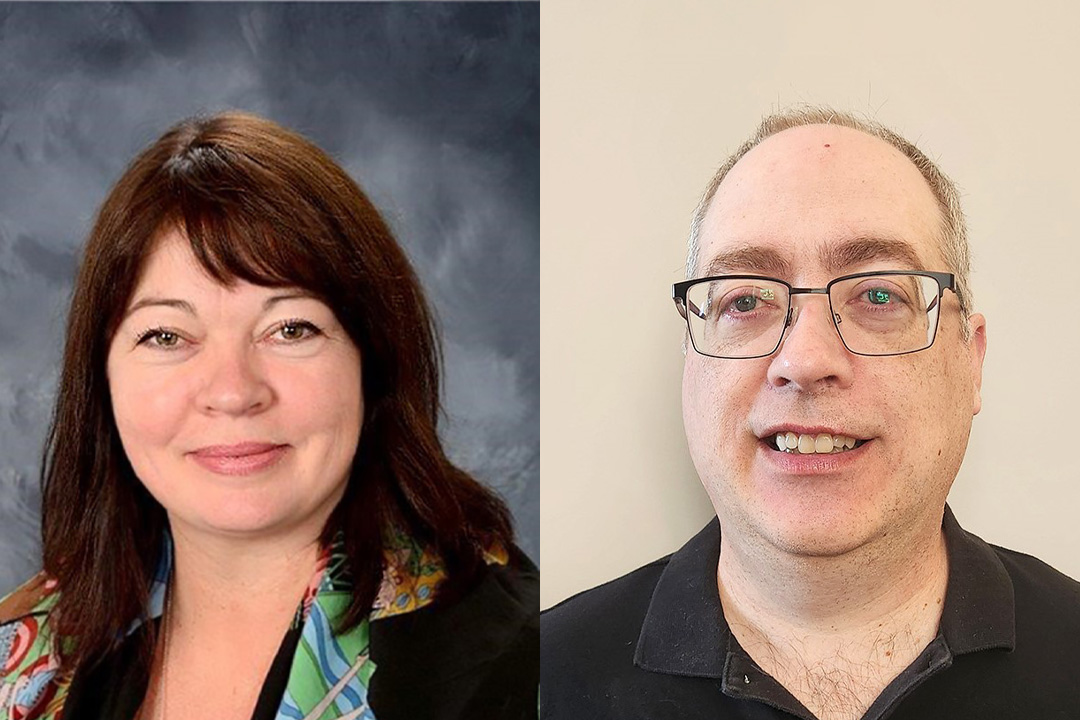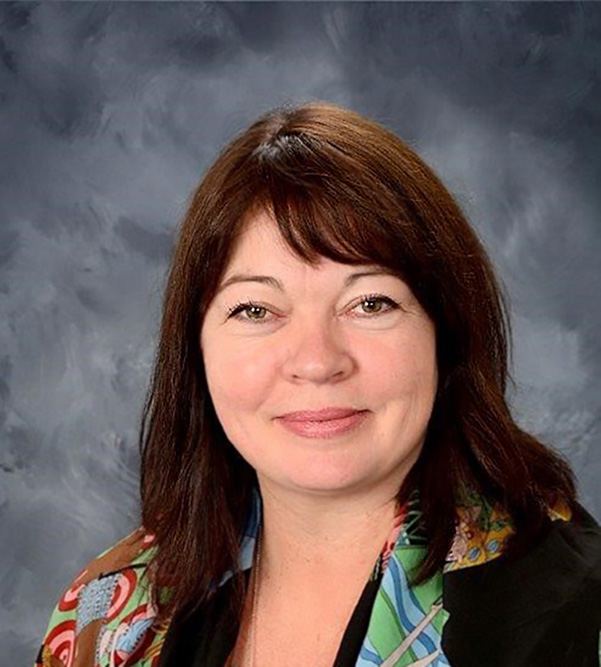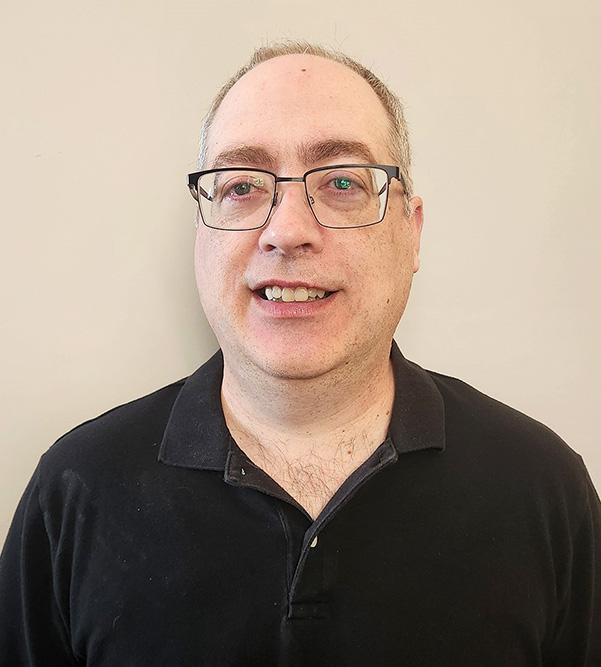
USask honours President’s Staff Excellence Award recipients
The recipients of this year’s President’s Staff Excellence Award at the University of Saskatchewan (USask) are an AgBio lab manager whose proactive approach to seek out impactful collaborations on campus has brought widespread benefits, and a team leader whose steadfast support has significantly contributed to the success of students and faculty in the department of Computer Science.
By University CommunicationsThis prestigious award is given annually to staff members who not only achieve excellence but also embody the university’s Mission, Vision, and Values, thereby playing a key role in realizing the goals of the University Plan 2025.
Natalia Rudnitskaya, Manager, Analytical Services, Department of Animal and Poultry Science, College of Agriculture and Bioresources

Collaboration is a key element highlighted in both USask’s Mission Vision and Values, and the University Plan 2025. Embodying this principle, Natalia Rudnitskaya, one of this year’s two recipients of the President’s Staff Excellence Award, truly embraces co-operative spirit in her capacity as the manager of analytical services within the Department of Animal and Poultry Science at the College of Agriculture and Bioresources.
According to colleagues, one of her greatest strengths lies in her propensity for collaboration. She not only fosters co-operation across departments within the College of Agriculture and Bioresources but also extends her collaborative spirit across the entire university.
Rudnitskaya oversees 36 laboratories spread across two buildings on campus, where she excels at supporting students, technicians and new faculty. She helps faculty run their undergraduate laboratories, conduct research programs, oversee summer undergraduate projects, and mentor graduate students to do their thesis work.
Her commitment ensures that students and researchers receive the necessary support and fair treatment.
“Shared and flexible laboratories facilities and equipment provide significant saving on laboratory space, resources and support, which in turn reduces ongoing operating and infrastructure maintenance costs for our university,” said Rudnitskaya. “This allows for more resources to be available to offer modern scientific equipment to our students and researchers to ensure excellent teaching and research opportunities.
“Innovative technologies, and support with designing accessible science spaces for students with disabilities where they can have a practical, hands-on experiences to maximize their learning, will become available as well.”
Additionally, she actively advises students on their projects and seeks opportunities to enhance research outcomes by collaborating with other departments, colleges, and universities. She significantly contributed to the construction and establishment of USask’s Livestock and Forage Centre of Excellence (LFCE). This collaborative research facility brings together scientists and stakeholders from various disciplines to drive innovative research in livestock and forage. It also serves as a hub for student training, extension activities, and knowledge mobilization.
“When students, technicians and faculty members from various department and colleges are engaged in joint research projects, share facilities and equipment, such collaboration enhances research outcomes and drives innovation,” Rudnitskaya added. “For example, by offering analytical laboratory’s space and equipment, research technician’s support and technical expertise for a Canadian Feed Research Centre, APS Laboratories assist in research, development and commercialization of new and better high-value animal feeds.”
Rudnitskaya has also taken a leadership role with respect to laboratory safety in the college. She was a member of the college’s Laboratory Safety Committee for years, and currently serves as Occupational Health and Safety Committee (OH&S) co-chair, and has been nominated for the USask Safety Award.
“Safety is important, because it saves lives,” said Rudnitskaya. “It prevents accidents and injuries, avoids devastating losses in research productivity for our University, and protects the environment.”
According to Dr. Angela Bedard-Haughn (PhD), dean of the College of Agriculture and Bioresources, “her rigorous oversight ensures that AgBio can continue to function as the most research-intensive college at USask, while adhering to high safety standards.”
“Natalia is the ultimate safety champion on campus,” said Jeff Lindsay, manager of safety resources. “As the OH&S co-chair, she leaves no stone unturned when addressing the safety of both her team and the college. She demonstrates a model for how scientific research can be done safely and brings a passion for safety that is unmatched.”
Greg Oster, Technical Team Lead, College of Arts and Science, Department of Computer Science

Greg Oster’s commitment to helping students and faculty formed while an undergraduate student at USask.
“I was bitten by the 'research bug' as an undergraduate summer student and became very interested in research,” said Oster, who is the technical team lead in the Department of Computer Science. “In this job I get to work with state-of-the-art computing equipment and often get to look at the deep technical details underlying new technology.
“Being able to help students and see them become excited about learning and research is very rewarding.”
Oster is one of this year’s two recipients of the President’s Staff Excellence Award. Amongst his many contributions to the university was helping to create a lab configuration to allow computer science students to write final exams in the computer labs, supporting the university’s values of innovation, creativity, integrity, and ethical behaviour. Prior to this computer-based exam setup coming online, computer science students had to write their entire exams, including their computer programs, on paper.
Oster and his team created a secure testing environment within the computer science teaching labs in Spinks where students are now able to write their exams on the same lab computers that they are familiar using and within a secure environment that deters cheating.
“The integrity of the exam writing process is very important to the reputation of the university, and a number of our faculty wanted an exam environment where that integrity could be preserved as much as possible,” said Oster. “Over time, our team has incrementally improved the technical environment surrounding computer-based exams (i.e. firewalls, proxies, etc.) to the point where students must be sitting at a designated computer in order to take the exam.”
This helps to ensure that computer science final exams are fair for every student, including those who require academic accommodations.
“Greg’s team also supported several AES (Access and Equity Services) students by setting up lab computers in private rooms within Spinks, because this exam format could not be delivered within the AES offices,” said computer science professor Ian Stavness, who nominated Oster for the award. “The preparation and effort required to build this system, adapt it to individual exams, and provide support during the exams, is a tremendous and meritorious undertaking.”
Oster’s impact on student success goes beyond the technical role in his labs. He takes an active role in their studies, always there to help with problems. He supports the Computer Science Students’ Society by allowing them to book lab space for their meetings, making sure they have everything they need for their events and meetings.
“I believe that my job is really about enabling others to grow and to achieve their goals,” said Oster. “For a student, that might mean guiding them through a learning experience or providing some other resource that allows them to complete some task. My hope is that in ‘leading by example’ the students will then go on to help others in the same way.”
His impact on the computer science department, faculty, students, and the university is evident through his dedication to his work.
“The number of times Greg has gone in after hours to bring systems back on-line is too numerous to remember,” said computer science professor Raymond Spiteri. “The simple knowledge that Greg has set up world-class computing facilities, and is there to get systems back on-line no matter when the call comes in, is a significant psychological support to the faculty and students in the department.
“I find it hard to fully describe how much we as a department have benefited from Greg’s dedication and commitment over the years.”
